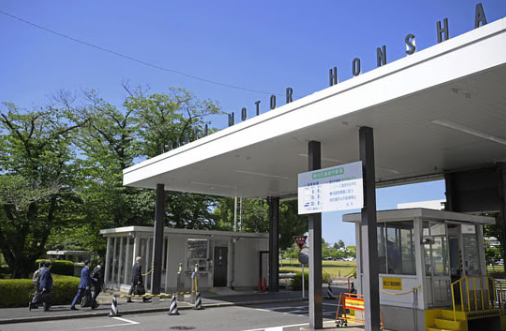Japanese transport ministry officials conducted an on-site investigation at Toyota Motor’s headquarters following the discovery of irregularities in their vehicle model certification applications. This investigation marks a significant expansion of the fallout from a safety test scandal originating at Toyota’s Daihatsu compact car unit. The ministry’s order for industry-wide checks of certification practices has implicated several major Japanese automakers.
📽️ WATCH – JAPANESE AUTHORITIES INSPECT TOYOTA HQ OVER CERTIFICATION IRREGULARITIES
Japanese authorities launched an on-site investigation at Toyota Motor’s headquarters on Tuesday (June 4), in a widening scandal that involves irregularities found in the country’s major… pic.twitter.com/KdAPHBy5F2
— PiQ (@PiQSuite) June 4, 2024
Toyota, Mazda, Honda, Suzuki, and Yamaha Motor admitted to submitting either flawed or manipulated data during the certification process for their vehicles. Toyota, the country’s largest automaker, was the first to be inspected after being flagged by the ministry. The other four automakers are also scheduled for inspections.
Analysts have mixed views on the implications for Toyota. While there is an expectation for Toyota to enhance its governance, the impact on its sales is projected to be minimal. This is because Toyota is only suspending sales of three models, and many of its domestic competitors also failed to meet ministry standards. James Hong, head of mobility research at Macquarie, noted that the damage to Toyota’s sales in the Japanese market would be limited since consumers have few alternatives.
Hong also suggested that Toyota Chairman Akio Toyoda could face increased scrutiny. Proxy advisory firms Institutional Shareholder Services and Glass Lewis have advised shareholders to vote against Toyoda’s re-election at the upcoming annual general meeting. Despite this, it is unlikely that Toyoda will lose his position, although his approval rating might decline.
Japanese transport ministry officials launch an on-site investigation at Toyota Motor’s headquarters after irregularities found in its applications to certify certain vehicle modelshttps://t.co/cIIOikhaqE
— TRT World (@trtworld) June 4, 2024
Both Toyota and Mazda have suspended sales of certain models but assured that there are no performance issues that violate regulations, and customers can continue to use their cars. Toyota cited examples of their misconduct, such as measuring collision damage on only one side of a model’s hood instead of both, as required. Additionally, some tests were conducted under conditions stricter than the ministry’s guidelines, yet these did not meet government requirements.
This is not the first instance where safety test scandals have led to production stoppages within Toyota group companies. The recent revelations could disrupt production at subcontractors and smaller entities in Japan’s extensive automotive supply chain. Such disruptions could have broader economic consequences, according to Toshihiro Nagahama, executive chief economist at Dai-ichi Life Research Institute. Nagahama emphasized that the impact on Japan’s economy cannot be overlooked, potentially affecting economic growth this quarter if subcontractors face significant disruptions and consumers become more reluctant to purchase cars.
Toyota headquarters raided by government today over faulty safety data scandal. Yesterday the company’s chairman apologised for massive cheating on certification tests for seven models. Meanwhile, production of three of those models is suspended. pic.twitter.com/vItgG1HwdO
— Bra Peter (@Mr_PeterM) June 4, 2024
In the stock market, shares of Toyota, Honda, and Mazda have each fallen by nearly 3% since Friday’s close, while Yamaha has seen a 1.3% decline. Suzuki’s shares, however, have remained stable.
Overall, the certification irregularities have prompted a significant response from the transport ministry and have put pressure on the implicated automakers to improve their practices. While the immediate financial impact on these companies may be limited, the potential long-term effects on production and economic growth present a considerable concern.
Major Points:
- Investigation Launched: Japanese transport ministry officials investigated Toyota’s headquarters after finding irregularities in vehicle model certification applications.
- Widespread Implications: The safety test scandal, initially at Toyota’s Daihatsu unit, has now affected Toyota, Mazda, Honda, Suzuki, and Yamaha, all of which admitted to submitting flawed or manipulated certification data.
- Sales Impact Limited: Analysts believe the impact on Toyota’s sales will be minimal despite the suspension of three models, as consumers have few alternatives in the Japanese market.
- Governance Pressure: Toyota Chairman Akio Toyoda faces increased scrutiny, with proxy advisory firms recommending shareholders vote against his re-election, though he is not expected to lose his seat.
- Economic Concerns: The scandal could disrupt Japan’s automotive supply chain and impact economic growth, with potential production disruptions at subcontractors and a decline in consumer confidence.
Kirk Volo – Reprinted with permission of Whatfinger News



